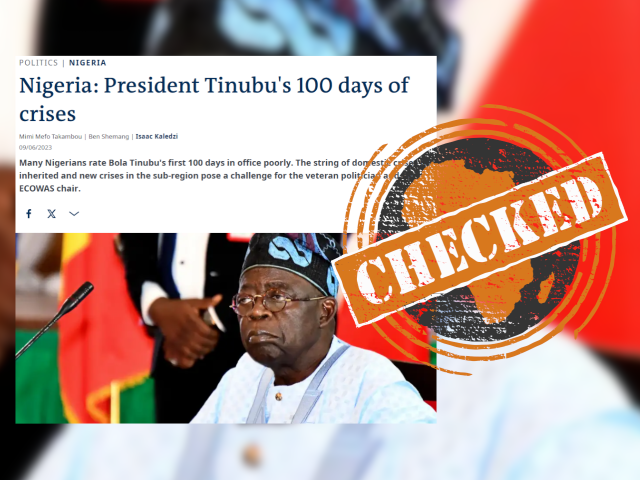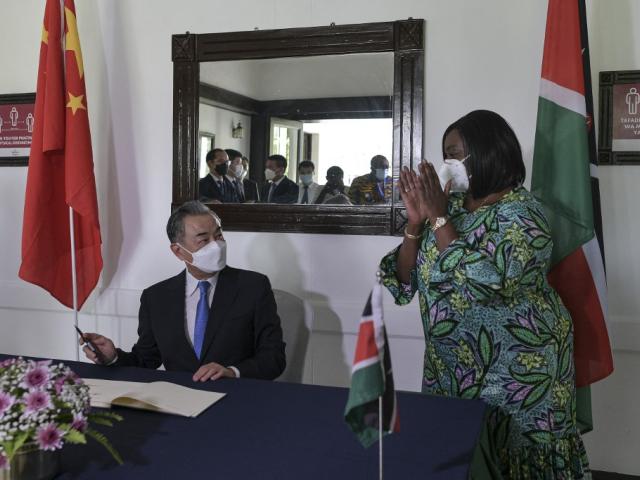With four months to go until Kenya’s elections, the country’s opposition is stepping up the political battle. Opposition leaders have been tearing into claims made by President Uhuru Kenyatta in his 2017 State of the Nation Address
First Raila Odinga, the leading opposition figure in the country and former prime minister, gave an official response. Then, Odinga and top leaders of the National Super Alliance – a political coalition of major opposition parties— convened a public rally in Nairobi.
Odinga told the crowd that the President’s State of the Nation speech did not depict the reality on the ground.
But do his claims? We isolated 5 about the budget, debt, performance of the stock exchange, cost of power and road construction.
Kenya’s 2010 Constitution provides for equitable sharing of money between the national government and the country’s 47 counties.
The counties became operational at the start of the current government’s term in March 2013. They are stipulated to receive “not less than 15%” of all revenue collected by the national government.
Odinga and others feel that the government has not earmarked enough resources for development at the grassroots through the county governments.
Treasury figures show that the most recent revenue allocation to counties (KSh280.3 billion) have only now exceeded the first national development budget (KSh275 billion) of the Jubilee government back in 2013/14.
When the current government won the March 2013 election, Kenya’s total debt was KSh1.794 trillion, according to the Central Bank of Kenya.
By the end of the first full financial year of the Kenyatta administration on 30 June 2014, the public debt had grown to KSh2.422 trillion.
Debt increased to KSh3.619 trillion at the end of the 2015/16 financial year.
The latest publicly available data - from the Budget Policy Statement for 2017 released in November 2016 - recorded debt at KSh3.777 trillion.
The government has continued borrowing, with an additional KSh82 billion of debt added this month. Without official figures showing that Kenya’s debt has reached KSh4 trillion, we rate this claim unproven.
Kenya has a national pension scheme to which all working Kenyans are legally required to contribute a share of their income. Nearly two-thirds (65%) of it is invested in the Nairobi Securities Exchange (NSE).
The NSE is the principal bourse for Kenya with 68 listed companies in categories such as agriculture, banking, insurance, telecommunications and manufacturing.
Investment analyst Aly-Khan Satchu told Africa Check that to assess the loss or gain in the bourse you need to determine the variation in market capitalisation.
At the end of the first trading week of 2016, the market capitalisation at the Nairobi Securities Exchange stood at KSh2.064 trillion. In the last week of December 2016, the figure had dropped to KSh1.901 trillion.
That means that investors in the bourse lost KSh162 billion between January and December 2016.
Odinga said the loss was a signal that the economy was doing badly but experts told Africa Check the fall in market capitalisation is not necessarily related to the economy, which was expected to have grown by close to 6% in 2016.
“[They’re] not strictly correlated but we have had a bear market at the NSE,” said Satchu, also an authorised data vendor at the bourse.
Caleb Mugendi, an investment analyst with Cytonn Investments, an investment and real estate firm that keeps tabs on the pulse of the Kenyan economy, said the slump was mainly because of a new law that caps the interest rates banks can charge. Eleven banks are listed on the bourse.
“The bourse is a key driver of economic growth,” said Mugendi. “You would expect that if the economy is doing well, the NSE
will also be doing well, but the Banking [Amendment] Act happened, affecting many banks.”
The Kenya Association of Manufacturers, an influential industry lobby, has complained that the high cost of power in Kenya scares away investors.
Kenya borders Uganda, Tanzania, South Sudan, Ethiopia and Somalia, with Burundi and Rwanda joining it in the East African Community.
Direct competition to host investors usually comes from Tanzania, Uganda and Ethiopia, with a former top government official complaining that most of the investors “frustrated” with Kenya are flocking to Ethiopia.
The latest data from the World Bank’s Doing Business project, which assesses business environments in different countries, puts Kenya’s power cost at 17.6 US cents per kilowatt hour. This is more than 4 times what it costs in Ethiopia but 5c cheaper than in Uganda.




Add new comment